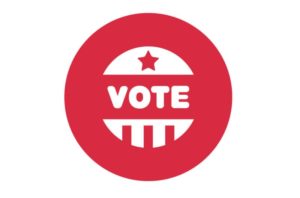
Active-duty military and overseas voters will be able to use their mobile phones to vote in Denver’s upcoming municipal election. The pilot program will utilize a blockchain-based voting platform designed by Voatz, which previously provided blockchain technology for mobile voting in municipal and general elections in West Virginia.
The Denver news comes courtesy of Tusk Philanthropies in partnership with Voatz, the City and County of Denver, and the National Cybersecurity Center. Tusk is hoping that mobile voting will boost voter turnout and ensure better representation at all levels of government.
“Our democracy is broken. That only changes if turnout soars,” said Tusk Philanthropies Founder and CEO Bradley Tusk. “Blockchain makes it secure and feasible. The Denver Elections Division deserves a tremendous amount of credit for being one of the first to implement an innovative and convenient solution to fix the underlying issues in our government.”
“We believe this technology has the potential to make voting easier and more secure not only for our active duty military and overseas citizens, but also for voters with disabilities,” added Jocelyn Bucaro, Denver’s Deputy Director of Elections.
The pilot is a bipartisan initiative, and will be compliant with the Uniformed and Overseas Citizens Absentee Voting Act and the Military and Overseas Voter Empowerment Act. Qualified Denver voters will be able request and cast their absentee ballots beginning on March 23rd until polls close at 7pm on election day (May 7th). Authentication will be handled through the Voatz app, which will also allow voters to confirm that their votes were properly recorded.
“The application of blockchain in our election system provides for secure, auditable, transparent and accurate counting of ballots and the increased integrity of our election system,” said Vance Brown, the CEO of the National Cybersecurity Center.
Voatz received $2.2M in seed funding at the beginning of 2018, and has successfully conducted more than 30 elections across various institutions. The tamper-proof nature of blockchain technology could be revolutionary for democracy, especially given the allegations of election fraud in the past few months. Blockchain could potentially eliminate the risk of human error and would make voting less of a hassle so more people would be able to participate.
–
March 8, 2019 – by Eric Weiss

Follow Us